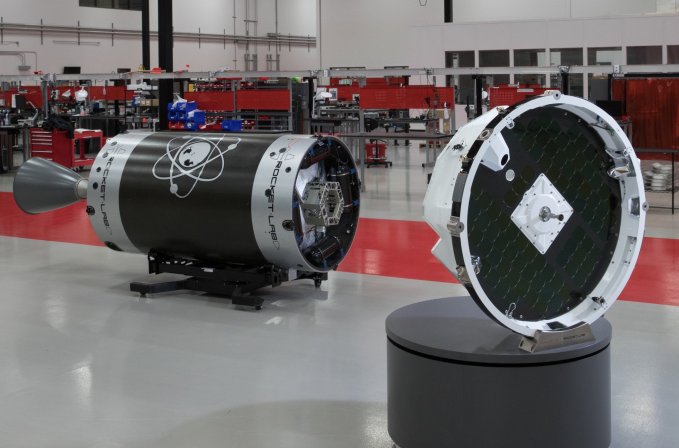|
|
|
It’s shocking to see just how changed the world is from even the last time this newsletter went out – just seven short days ago. The global coronavirus pandemic is having an impact on even the most fundamental and basic aspects of our daily lives, so it’s not surprising that the space industry is likewise affected.
So far, however, some of the biggest projects in space have been continuing as planned. This week, we saw NASA begin to step down certain efforts, but we also saw some key launches take place even as the pandemic worsens.
|
|
|
|
|
NASA has elevated its precautionary measures across all of its facilities to at least Level 4 in the agency’s crisis response matrix for COVID-19, which means that there is mandatory telework with possible, with on-site staff relegated only to people who are absolutely mission critical.
The agency updated the status of its major ongoing projects on Friday, noting that some, like work on the SLS and Orion spacecraft for its crewed deep space missions, are on hold. The James Web Telescope, which is set to launch a new in-space observatory next year, is also on hold, but the Mars 2020 and Commercial Crew missions continue.
Read more
|
|

|
|
|
|
SpaceX and NASA are still holding to their planned timetable for their first Commercial Crew launch, which will see human astronauts fly on a SpaceX spacecraft for the first time ever. The partners issues a media alert for anyone looking to cover the launch in person, with a timeframe of mid-to-late May for the launch to take place. COVID-19 is definitely a factor here, but NASA already enacts isolation measures to ensure the safety of their astronauts prior to a launch, so this could still happen as planned.
Read more
|
|
|
|
|
Broadband satellite internet company OneWeb, which is looking to provide low-cost connectivity to underserved customers from space, has laid off as much as 10 percent of its workforce, and is said to be seeking bankruptcy protection. The company had some good news this weekend, too, however – it launched a batch of 34 satellites on Saturday to continue to build out its constellation.
Read more
|
|

|
|
|
|
SpaceX has a new record for re-use of one of its Falcon 9 boosters, courtesy of its latest Starlink satellite launch, which took place on Wednesday. The launch used a Falcon 9 that had flown four times previously, making it a five-time flyer. The booster won’t get a chance to fly even more, though it should technically be able to: It missed the landing at sea, the second time one of SpaceX’s controlled booster landing has missed in as many launch attempts.
Read more
|
|
|
|
|
That same launch had an engine anomaly where one of the Merlin engines on the launch vehicle failed shortly following lift-off. This actually didn’t present the Falcon 9 from achieving its mission and delivering the payload of Starlink satellites to their target orbit, but it is a troubling development, especially given that the launch was originally scrubbed due to unusually high engine power readings.
Read more
|
|

|
|
|
|
Rocket Lab also still appears to be sticking to its launch schedule for the time being, and it got a boost for its ongoing business with a new certification granted by NASA. The so-called Category 1 certification from the agency means that it can launch smallsats on the agency’s behalf on an ongoing basis. Rocket Lab already launched payloads on NASA’s behalf, but as it increases its certification level, there’s less red tape for each successive mission.
Read more
|
|
|
|
|
That’s not the only big news for Rocket Lab this week: The company is also acquiring Sinclair Interplanetary, a specialized supplier of satellite hardware components based in Toronto. Sinclair will continue to serve its customers under the deal, but it’ll also allow Rocket Lab to add reliable supply chain sourcing to its own custom satellite hardware offerings for clients.
Read more
|
|

|
|
|
|
One place where the coronavirus crisis is having a huge impact on spaceflight operations is Europe, where the spaceport located in French Guiana operated by Arianespace has suspended all activity. This means at least two missions are cancelled for now, though the agency and their partners hope to resume operations as soon as possible.
Read more
|
|
|
|
|
|
Newest Jobs from Crunchboard
|
-
Product Owner - Next Gen Digital Investing App at Quantalytics Holdings, LLC (Jersey City, NJ, USA)
-
Digital Growth Hacker/Marketer - Next Gen Digital Investing App at Quantalytics Holdings, LLC (Jersey City, NJ, USA)
-
Senior Software Engineer - Next Gen Digital Investing App at Quantalytics Holdings, LLC (Jersey City, NJ, USA)
-
Product Owner - Content and Newsletter - Next Gen Digital Investing App at Quantalytics Holdings, LLC (Jersey City, NJ, USA)
-
Senior Product Manager at Bombora (Reno, NV, USA)
See more jobs on CrunchBoard
Post your tech jobs and reach millions of TechCrunch readers for only $200 per month.
|
|
|
|
|
|
|
|






